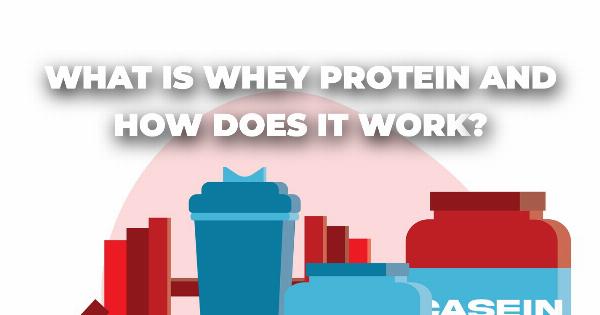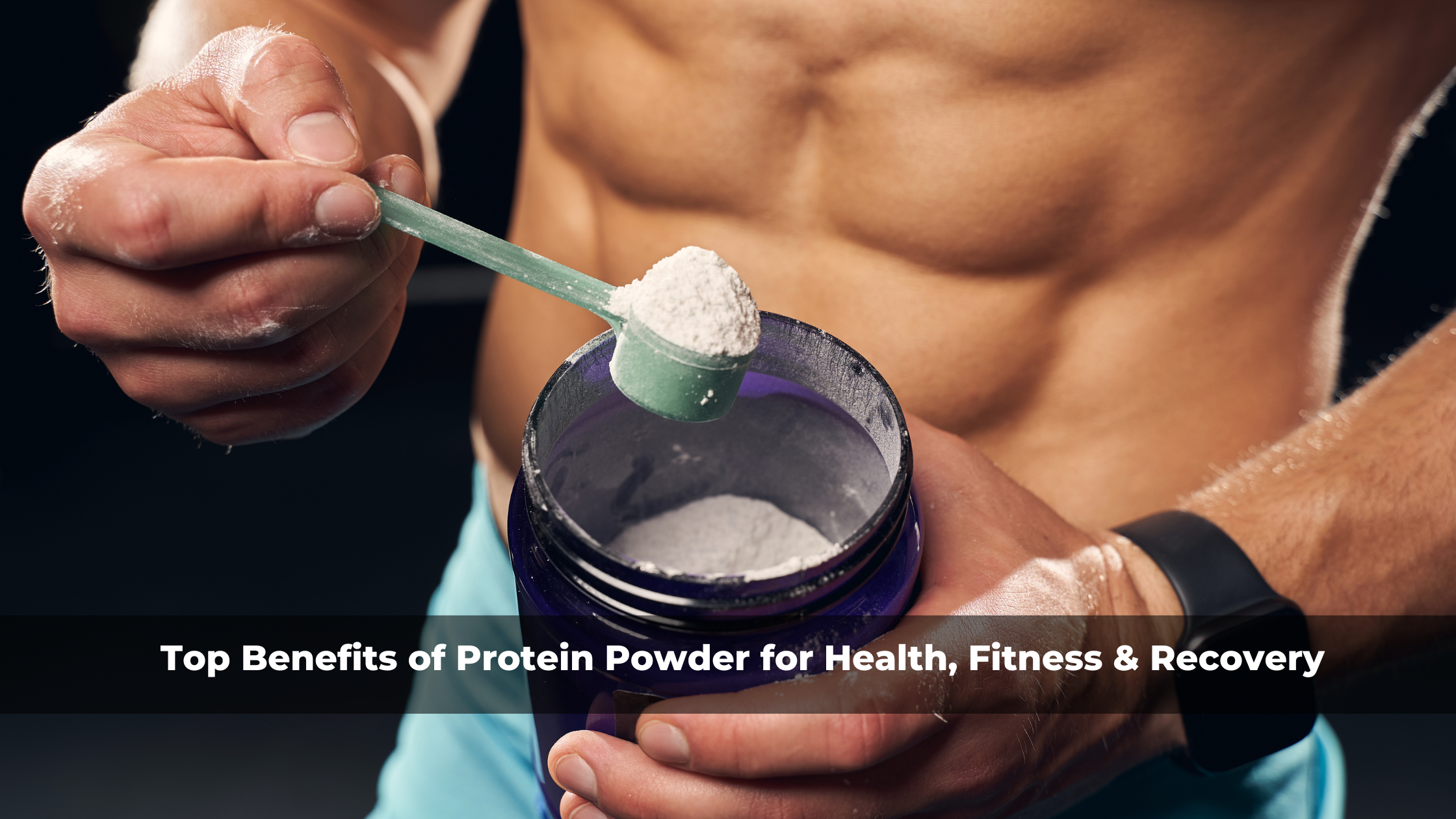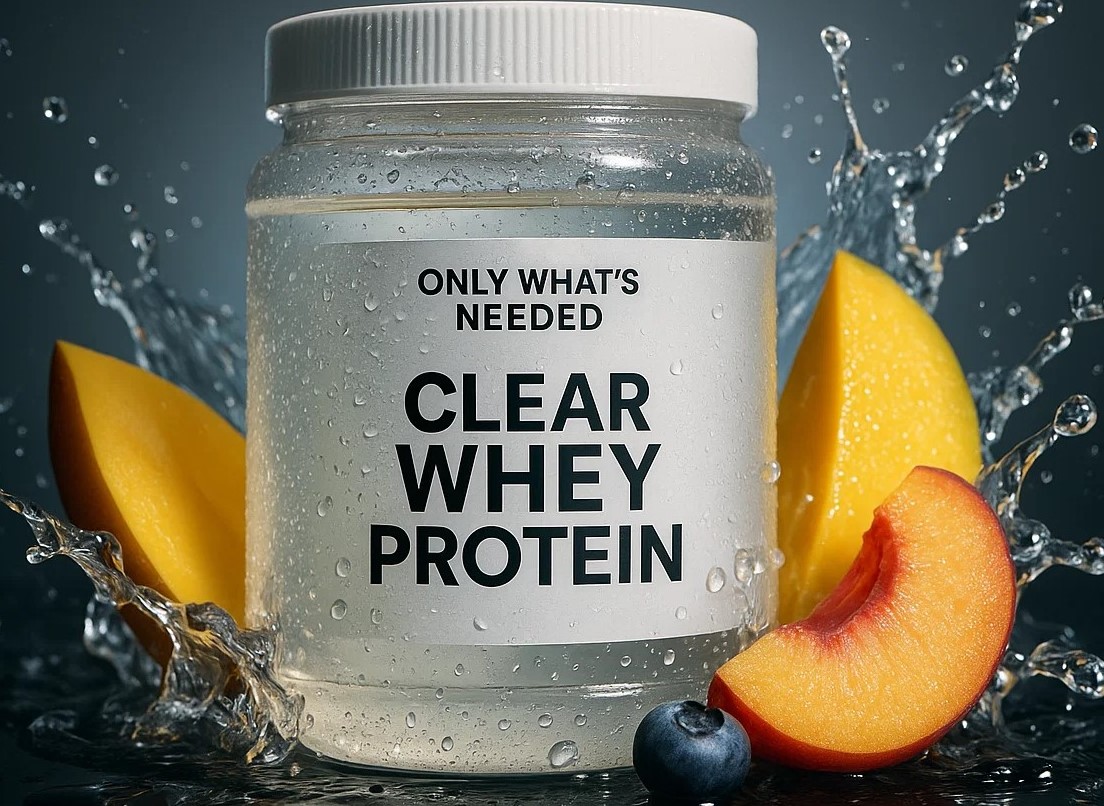What is Whey Protein and How Does it Work?

Strong 8k brings an ultra-HD IPTV experience to your living room and your pocket.
What is Whey Protein?
✍️ Athletes and gym-goers often debate the best supplements. In our resource on whey protein, we reveal why this is considered the gold standard for post-workout recovery, lean muscle growth, and maintaining a balanced diet.
Whey protein, a byproduct of cheese production, is one of the most popular and widely used protein supplements in the fitness and health industries. It's derived from milk and is a complete protein, meaning it contains all nine essential amino acids that the human body cannot produce on its own. These amino acids play a crucial role in muscle repair, growth, and overall body function, making whey protein a popular asset for athletes, bodybuilders, and anyone looking to enhance their health and fitness.
Types of Whey Protein
Whey protein comes in three primary forms: Whey Protein Concentrate (WPC), Whey Protein Isolate (WPI), and Whey Protein Hydrolysate (WPH). Each form has its unique characteristics and different dietary needs and goals.
- Whey Protein Concentrate (WPC):- WPC is the most common form of whey protein, containing approximately 70-80% protein, with the remainder made up of fats, carbohydrates, and lactose. This form is ideal for individuals seeking a balanced supplement that provides additional nutrients beyond protein.
- Whey Protein Isolate (WPI):- WPI undergoes further processing to remove most of the fats and lactose, resulting in a product that is around 90-95% protein. This makes WPI an excellent choice for those who are lactose intolerant or looking to minimize their fat intake while maximizing protein consumption.
- Whey Protein Hydrolysate (WPH):- WPH is pre-digested, meaning it has undergone partial hydrolysis, breaking down the protein into smaller peptides. This makes it easier and faster for the body to absorb. WPH is often used in medical protein supplements and infant formulas due to its high digestibility and low allergenicity.
How Whey Protein Works in the Body
- Muscle Protein Synthesis:- One of the primary reasons whey protein is so effective is its ability to stimulate muscle protein synthesis (MPS). MPS is the process by which the body repairs and builds muscle tissue after it has been broken down during exercise. Whey protein is rich in branched-chain amino acids (BCAAs), particularly leucine, critical in initiating MPS. When consumed post-workout, whey protein provides the necessary building blocks for muscle repair and growth, making it an essential component of any recovery routine.
- Rapid Absorption Rate:- Whey protein is known for its rapid absorption rate, which is significantly faster than other protein sources such as casein. This rapid absorption is beneficial because amino acids can be quickly delivered to the muscles, particularly after a workout when the body is in heightened protein synthesis. This quick delivery of nutrients helps kickstart recovery, reducing muscle soreness and fatigue.
- Enhancing Fat Loss: Besides its muscle-building properties, whey protein has Been shown to aid in fat loss. Consuming whey protein can help increase satiety, reduce overall Lossrie intake, and manage weight. Furthermore, the protein's thermogenic properties, which increase the body's calorie-burning rate, can contribute to fat loss over time. Combined with regular exercise and a balanced diet, whey proteLossan can be a powerful tool for those looking to shed unwanted body fat while preserving lean muscle mass.
- Immune System Support:- Whey protein is not just beneficial for muscles. It also plays a role in supporting the immune system. It contains immunoglobulins, lactoferrin, and other bioactive compounds that enhance the body's immune response. Regularly consuming whey protein can help strengthen the immune system, making fighting infections and illnesses easier. This is particularly important for individuals engaged in intense physical activity that may temporarily weaken the immune system.
- Managing Blood Sugar Levels:- Whey protein has been found to positively affect blood sugar levels. It is a valuable supplement for individuals with type 2 diabetes or those at risk of developing the condition. Studies have shown that consuming whey protein before or alongside a high-carbohydrate meal can help reduce post-meal blood sugar spikes. This effect is due to whey protein's ability to stimulate insulin secretion, which helps regulate blood sugar levels more effectively.
- Antioxidant Properties:- Whey protein is a rich source of the amino acid cysteine, a precursor to glutathione, one of the body's most potent antioxidants. Glutathione protects cells from oxidative stress and damage caused by free radicals. Increasing glutathione levels and whey protein can help reduce the risk of chronic diseases and support overall health and longevity.
- Supporting Cardiovascular Health:- Emerging research suggests that whey protein may also benefit cardiovascular health. Regular consumption of whey protein has been linked to lower blood pressure, improved cholesterol levels, and reduced markers of inflammation. These effects are likely due to the presence of bioactive peptides in whey protein that have a positive impact on blood vessel function and overall cardiovascular health.
How to Choose the Right Whey Protein
With so many whey protein products on the market, choosing the right one can be overwhelming. Here are some factors to consider:
- Protein Content:- Look for a product with a high protein content per serving. Isolates generally have the highest protein concentration, followed by concentrates.
- Ingredient Quality:- Choose products that use high-quality ingredients without unnecessary additives, fillers, or artificial sweeteners.
- Brand Reputation:- Opt for reputable, transparent brands about their sourcing and manufacturing processes.
- Dietary Needs:- If you are lactose intolerant or have dietary restrictions, consider an isolate or hydrolysate, as these forms have lower lactose content.
- Flavor and Mixability:- Whey protein comes in various flavors, so choose one you enjoy and mixes well with your preferred liquids.
Incorporating Whey Protein into Your Diet
Whey protein is versatile and can be easily incorporated into your daily diet.
Here are some ideas:
- Post-Workout Shake:- Mix whey protein with water, milk, or an alternative for a quick and easy post-workout shake.
- Smoothies:- Add whey protein to your favorite smoothie recipes for an extra protein boost.
- Baking:- Use whey protein powder in baking recipes, such as protein pancakes, muffins, or energy bars.
- Yogurt or Oatmeal:- Stir whey protein into yogurt or oatmeal for a protein-rich breakfast or snack.
Conclusion
Whey protein is a powerful supplement that offers numerous health benefits, such as muscle growth and fat loss, to support immune function and cardiovascular health. Whether you're aLosshlete, a fitness enthusiast, or someone looking to improve your overall health, incorporating whey protein into your diet can help you achieve your goals. By choosing the right type of whey protein and using it effectively, you can maximize its benefits and enhance your performance and well-being.
Note: IndiBlogHub features both user-submitted and editorial content. We do not verify third-party contributions. Read our Disclaimer and Privacy Policyfor details.







